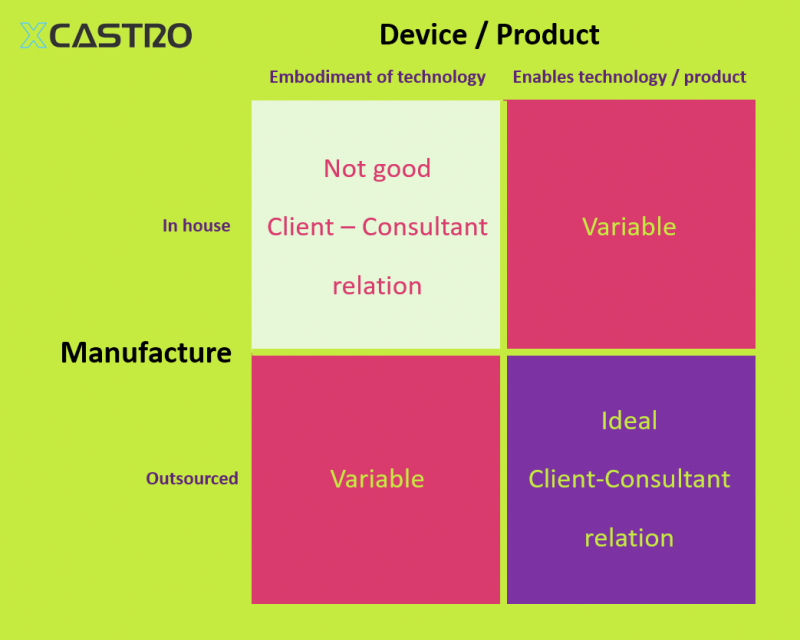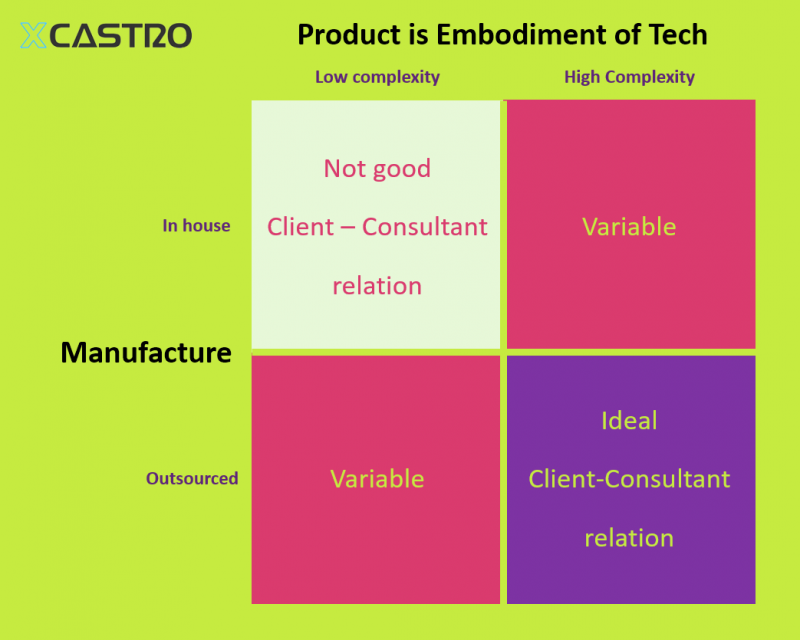Working with a Product Design Consultancy
I have worked as a product design consultant for 10 years. During this period I have collaborated with many clients from different industries with a wider range of needs. What I have found is that there are some type of business where is very difficult to add value as a consultant, and others where you can make a significant difference.
To summarize my thoughts I have decided to present them as a series of matrix. By no means these intend to present all the possible relationships between a client and a consultant. Also, these are not rules, as each project and business is different.
Type of product and how is made
The first distinction is the type of product. Here I divide them in two groups, either it is an embodiment of the technology or it enables a technology. Perhaps it is easier to explain the later. An enabler is where a business has a product or technology that needs another product to be able to enable consumer to use it. For example, an inhaler. The technology or product is a drug, and the pharmaceutical company needs a “device”, which is the inhaler, to enable patients to use their drug. Another example are coffee pod machines. If we think of Nespresso, what they sell are coffee pods, but they need a coffee machine for them to enable consumers to use their coffee pods.
The second distinction here is if the company makes or outsource the manufacturing of the product that will be developed.
In my experience, the ideal combination is when a client need an “enabler” product and they outsource the manufacturing. As you would imagine, in these cases the client does not have a lot of experience and may need disruptive designs for their product to succeed.
Product Complexity
Another way to look at this, is the product complexity. This could be either how challenging are the requirements, the sector regulations or the quality that the product demands. For example, some medical products are not that complex, but require very high levels of quality and regulatory documentation. On the other side, some industrial systems are extremely complex but do not require to comply with many regulations, hence could be considered low complexity.
Here, the best relationship is when there us a high level of complexity and the manufacturing is outsourced
Market or Product Strategy
I found this matrix on the book “What customers want” by A Ulwick, But in this case I am looking at where a Consultant can offer more value.
A company has several options to increase their market share, but to keep it simple we will look into two dimensions, either increasing market or diversifying products. In this case the best use of consultants is when looking for both of them. Companies do this when their technology has become a commodity and new products will not bring significant profit and there is no straight forward of delivering the existing product to new markets.
Hope this matrix had been useful and brought some insights


